"Ladies First" - Queen Latifah
On Representation
Sometimes we forget how much changed in so little time — and who led the changing.
Hip-hop celebrated only its 50th birthday in 2023, marking the moment Bronx DJ Kool Herc invented the “breakbeat” sound by isolating the drum break portion of funk songs and looping it between two turntables — which would become the foundation that he and others rhymed over. Six years later hip-hop peeked its head out from the underground scene and landed on Billboard charts in 1979 with “Rapper’s Delight” by the Sugarhill Gang. Another five years later the first rap song (Run-DMC’s “Rock Box”) made it into the MTV rotation. Representation was hard won from a channel that, at the time, featured only a handful of Black artists such as Michael Jackson and Lionel Richie.
Like the early days of rock n roll, hip-hop acts were mostly made up of men — or at least, that’s who garnered the most recognition and respect. Of course there were women MCs from the very beginning like MC Sha-Rock, who is considered the first female rapper, and Roxanne Shante, who is credited as part of hip-hop’s first-ever beef. Her diss track, “Roxanne’s Revenge,” was in response to sexist and misogynistic lyrics written about her by an all-male rap group, UTFO.. But even as the “golden age” of hip-hop began with the birth of the show Yo! MTV Raps, representation of women could be counted on one hand. Salt-N-Pepa, JJ Fad, Ms. Melonie, and MC Lyte were among the first to catch a break on the airwaves.
But it was a queer 19-year-old who kicked open the door that had been barely ajar for women and became hip-hop’s first female superstar.
Queen Latifah’s debut album, All Hail the Queen, was a demand for respect and equality among hip-hop’s elite. Her debut single, “Ladies First,” is a warning shot to all MCs who underestimated her flow as a rapper.
I break into a lyrical freestyle
Grab the mic, look into the crowd and see smiles
Cause they see a woman standing up on her own two
Sloppy slouching is something I won't do
Some think that we can't flow (can't flow)
Stereotypes, they got to go (got to go)
I'm a mess around and flip the scene into reverse
(With what?) With a little touch of "Ladies First"
In addition to calling out sexism in hip-hop, Latifah sought to unify and exalt other women rappers. The music video for “Ladies First” features overlooked rap pioneers like Ms. Melodie, MC Peaches, and Ice Cream Tee, as well as another up-and-coming MC, Monie Love. The music video addresses systemic racism and features images of Sojourner Truth, Harriet Tubman, and Angela Davis, who were central in the struggle for both Black and women’s liberation. Also featured are brutal images of South Africa’s apartheid. Dressed like a military general, Latifah stands in front of a map, knocking over giant chess pieces shaped like white government officials and replacing them with pieces shaped like the clenched fist that symbolizes Black liberation and the fight against oppression.
In "U.N.I.T.Y.," a single from her third album, Black Reign, Latifah continues her crusade against misogyny.
Instinct leads me to another flow
Every time I hear a brother call a girl a bitch or a ho
Tryna make a sister feel low
You know all of that gots to go
Now everybody knows there's exceptions to this rule
Now don't be gettin' mad, when we playin', it's cool
But don't you be calling me out my name
I bring wrath to those who disrespect me like a dame
The impact of Latifah’s storied career as a hip-hop artist and actor has named her to an impressive list of firsts — the first female rapper to perform at a Super Bowl, to be nominated for an Oscar, to have a star on the Hollywood Walk of Fame, and in 2023, to earn the Kennedy Center Honors Kencen ribbon.
And while she took on the system by demanding respect for herself as a Black woman, many LGBTQ+ fans criticized Latifah for not openly representing the queer community. Latifah portrayed multiple queer characters in films, including Set It Off, Bessie, and Chicago (for which she was nominated for “Best Supporting Actress”) — all while routinely evading questions about her personal life. In an interview with The New York Times in 2008, she said, “I don’t have a problem discussing the topic of somebody being gay, but I do have a problem discussing my personal life… I don’t care if people think I’m gay or not. Assume whatever you want. You do it anyway.”
Some fans thought she might come out after agreeing to headline the 2012 Long Beach Pride festival. But the moment of truth never arrived. And it didn’t arrive two years later when she officiated an onstage wedding of 33 couples (half of whom were gay) during a live performance of “Same Love” by rapper Macklemore during the 2014 Grammys. No doubt some viewers were watching from parts of the country where same-sex marriage was still illegal.
Queen Latifah never owed the public access to her personal life. But does the trailblazer who led the fight against sexism in hip-hop owe the queer community equal representation?
Everyone’s journey through sexuality is different because it’s deeply personal. There is no “correct” way to come out. In a perfect world, queer people wouldn’t need to come out just as straight people don’t announce their sexuality to the world. On the other hand, we do not live in a world where these two groups of people are treated equally.
Hip-hop’s lineage is also firmly rooted in homophobia. Look up the lyrics to “Gangster Gangster” from N.W.A. or "Meet the G That Killed Me” by Public Enemy. “Everybody in hip-hop discriminates against gay people,” said Kanye West in a 2005 interview with MTV’s Sway. “Matter of fact, the exact opposite word of ‘hip-hop,’ I think, is ‘gay.’ Like yo, you play a record and if it's wack, ‘That's gay, dog!’ And I wanna just come on TV and just tell my rappers, just tell my friends, ‘Yo, stop it fam.’"
Until oppressed groups are no longer oppressed, visibility and representation absolutely matters.
So it was a big deal when Latifah came out in 2021 while receiving the BET Lifetime Achievement Award. In her acceptance speech, she thanked her longtime partner, Eboni Nichols, and their son, Rebel, then ended her speech by wishing viewers a “Happy Pride!”
Queen Latifah is an intersectional icon. So she wasn’t always explicit about her sexual orientation? Her embodiment of Afrocentric feminism and her role in challenging sexism, racism, and homophobia have changed the industry. It’s more accepting because of Queen Latifah. And so are we.
The 2023 Kennedy Center Honors will air on December 27th on CBS and Paramount+. Fellow queer hip-hop legend, Missy Elliott, was chosen to speak about Latifah’s impact and the cultural importance of her stage name: “Latifah is Arabic meaning “gentle” or “kind” while the queen moniker conveyed respect, dignity and a determination to play a leadership role in the culture. She was saying, ‘You WILL respect me. I won’t just set the bar. I AM the bar.’ ”



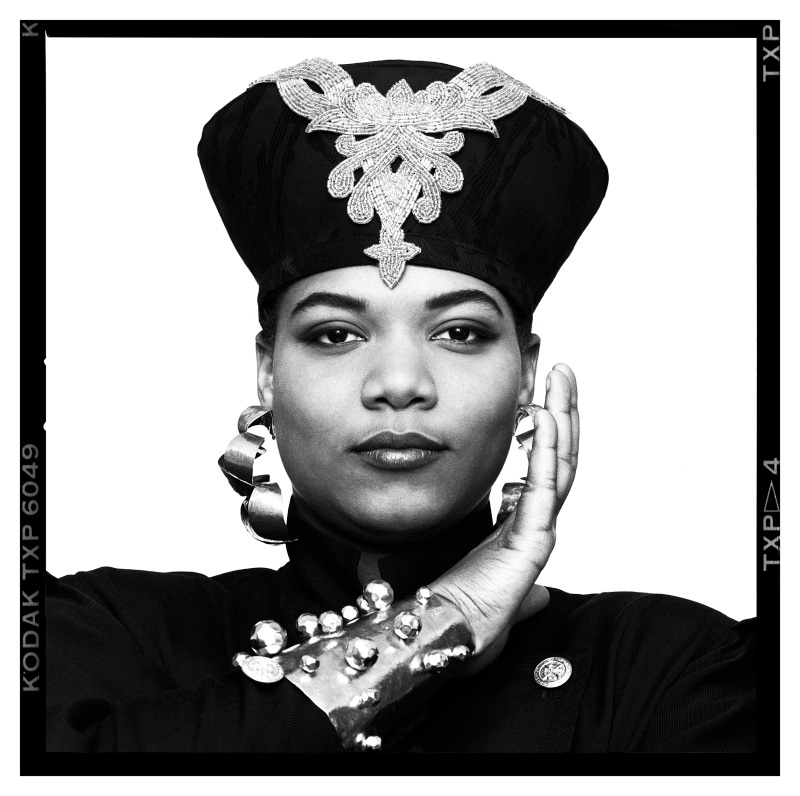

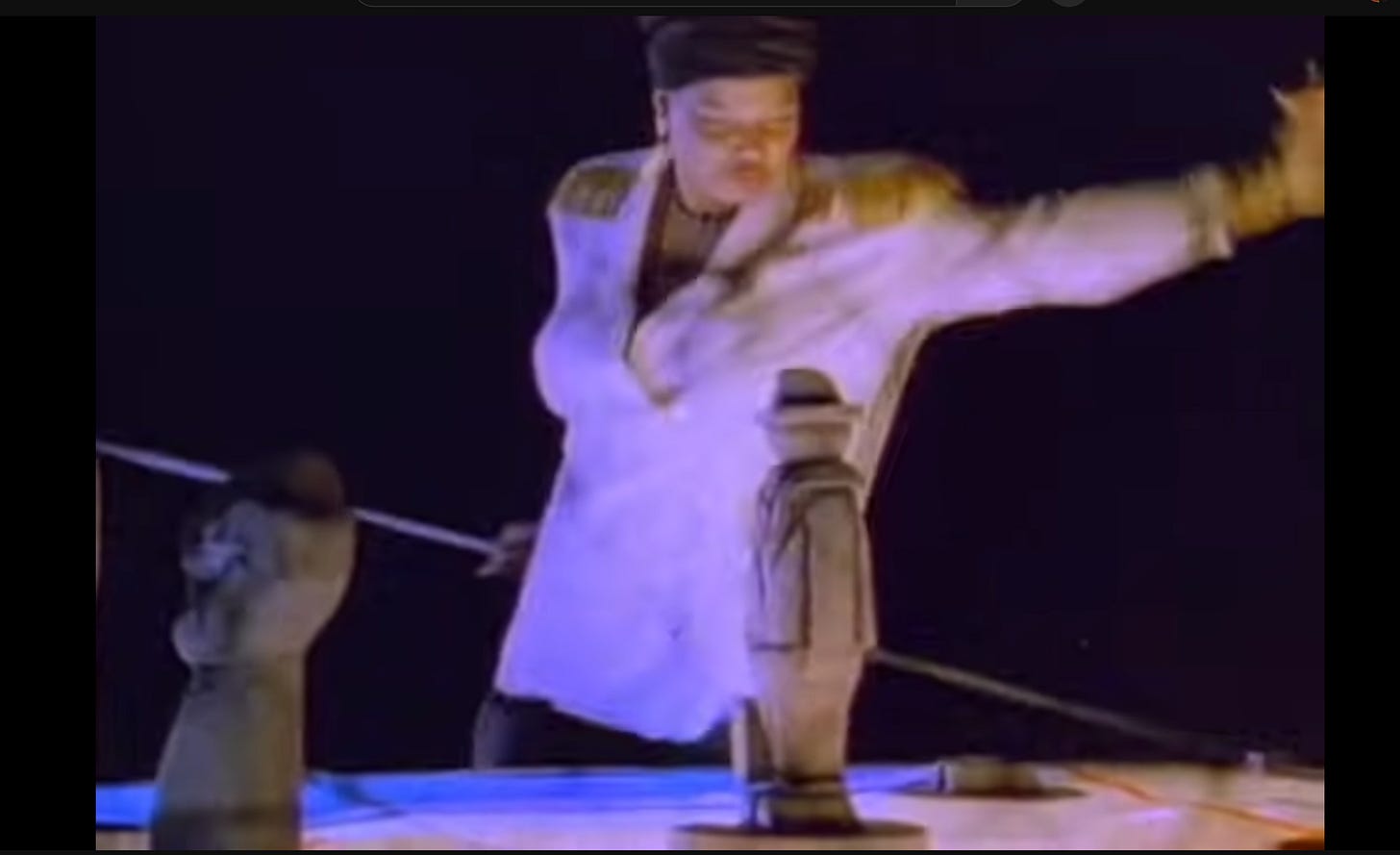
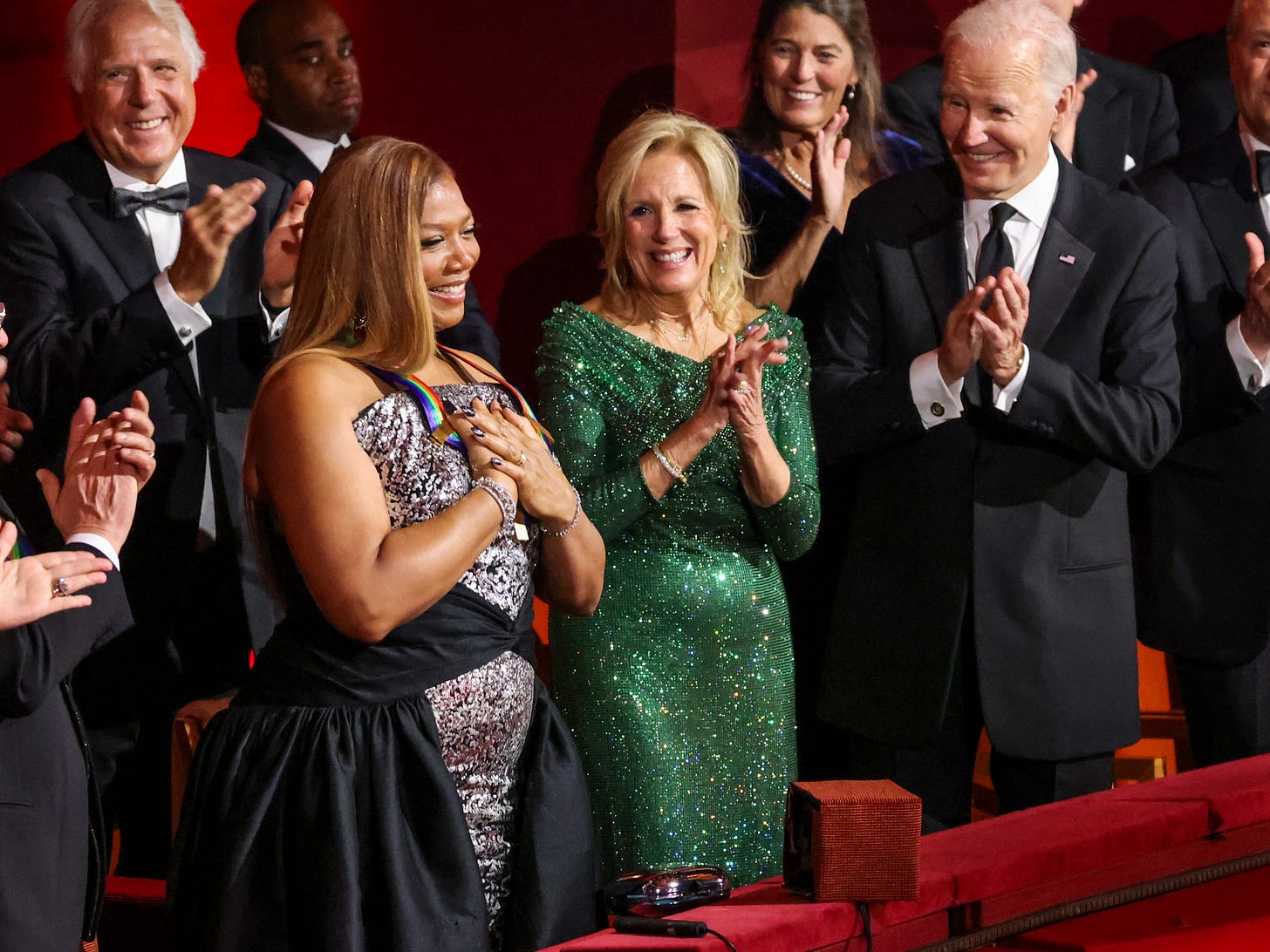
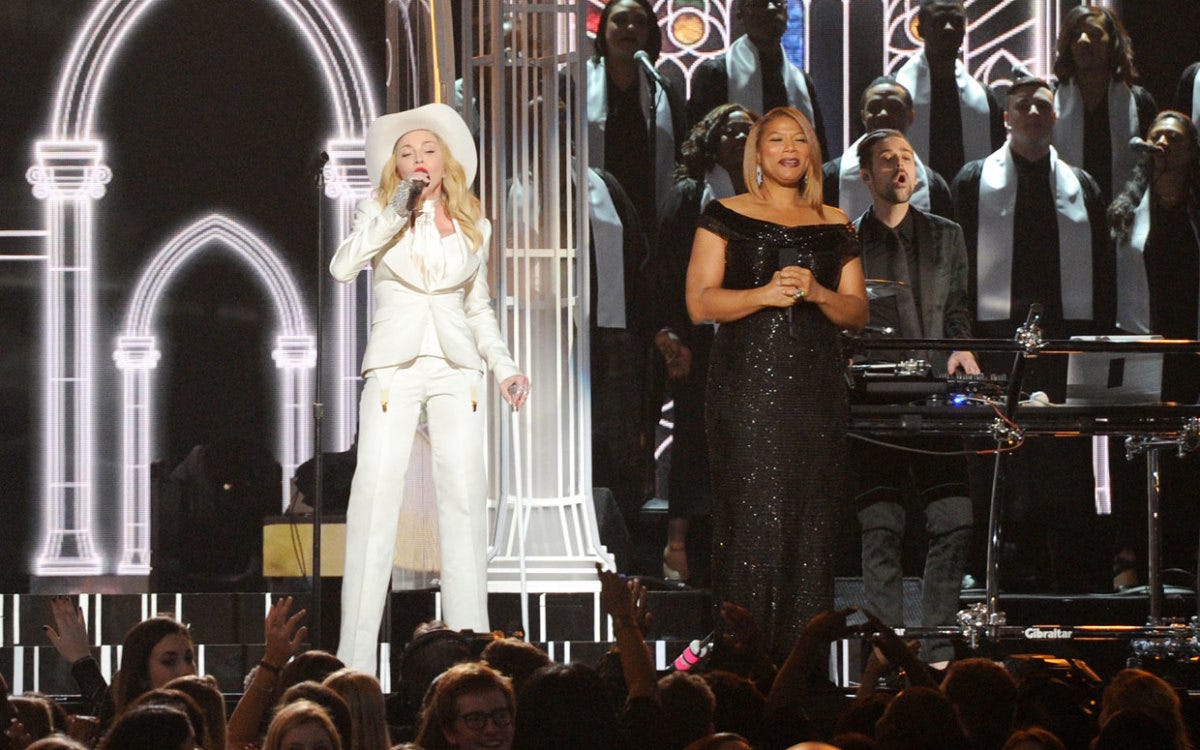
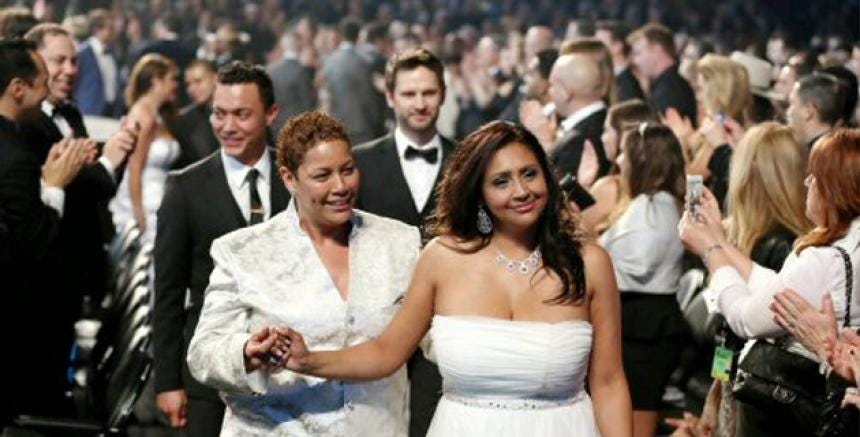
Wow. I knew of Queen Latifah, of course, but I hadn't seen the video song and it's amazing! That feels way ahead of its time.
Love this track!